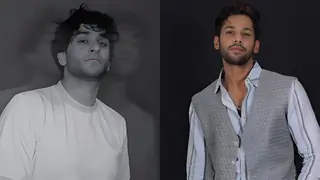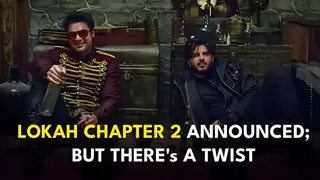Why Police Stories?
by Bill Johnson
Why so many police movies? Television shows? Books?
To understand the answer is to understand not just the "how" of telling a
story, but the "why."
Briefly, a story is a world created by a storyteller where every action has
meaning and purpose. The purpose of the story revolves around some issue at
stake in the world of the story being resolved. A story unfolds and moves with
purpose toward the fulfillment of what's at stake in the story through the
actions of its characters, who act to shape the outcome of the story. A story's
viewers internalize this story movement when they desire to experience the
outcome of scenes and character goals, and the story's fulfillment.
By its very nature, the police story lends itself to being story-like.
1) It offers a sense of resolution.
A crime occurs and is resolved by the actions of the story's characters.
Those who have been a victim of crime, or fear crime, through a story about
crime where justice prevails, can have an experience of "justice" prevailing,
and perpetrators being punished.
2) It is emotionally engaging.
The audience of a police story can engage emotionally in the story through a
variety of characters and issues.
Characters: the police, the criminals, the victim(s), the onlookers (the
audience), etc.
A well told police story is often set up to specifically invite this
identification with specific characters. Through them, the reader/viewer is led
to internalize and experience the movement of the story.
Issues: Feeling that justice will prevail. Or, conversely, that crime pays.
That victims will be avenged. That wrongs will be made right. That there is
order and purpose in the world (as made manifest by the action of the story).
That others who have our best interests at heart watch over us. That the mystery
of evil can be penetrated and defeated, etc.
Because viewers and readers often have a need to experience these issues in a
state of resolution, a well told story offers them that experience in a
dramatic, fulfilling way.
3) It can offer a satisfying intellectual experience.
Mysteries can allow readers to enter the story's world and both feel and
participate in this sense of being a part of a mystery being solved. Unlike the
world and it's unresolved mysteries and events, stories, in the main, offer
answers and resolution.
4) The very form that a police story takes, that something will be made clear
and resolved, gives it a story-like quality. In this genre, inexperienced
writers can work with a story form that gives structure to their writing.
To understand, why police stories, a writer needs to see that they are
successful because they engage an audience via stories that engage emotionally
and intellectually. That "feel" true to the audience's senses and ideas and
emotional needs of not what life is so much, as what they would like life to be.
Because they can be written within a formula and structure that lends itself to
drama, they attract both audiences and writers. Writers who are, in many senses,
an audience to their own stories.
To set out the principles of writing a well-made police story, what follows
is a review of Lethal Weapon.
Lethal Weapon opens with a humorous Christmas song playing over aerial shots of neighborhoods in Los Angeles. It moves into an apartment building apartment where a beautiful young blonde lays bare breasted. She smiles as the music switches to an ominous tone. Rising, she goes to a glass table where some Christmas lights are reflected...and drugs comes into focus on the table. She does some drugs, goes out the window onto a rail...pauses...then we see her jump, follow her, floating peacefully down...until she slams violently into a car.
This is the story's hook. Who is this woman? Why did she jump? Was there
someone with her?
In the following scenes, we meet Roger Murtaugh , a middle-aged, black police
detective. He has a happy, loving homelife; his main concern, that the gray is
starting to show. He's getting old, just turned 50, and his family lets him
know. In terms of story structure, this starts one of the story's back story,
Murtaugh thinking about his age.
Next series of scenes open on a barren landscape with a dog running to a
forlorn trailer. Inside the trailer, Martin Riggs smokes in bed, gets up to
drink a beer for breakfast. He's unkempt, naked, and obviously disturbed.
Third series of scenes, back to Murtaugh , who's casually told by his wife
that a Mike Hunsaker has called. Old friend he served with in Viet Nam. We also
see Roger wears a gun, so we know now he's a cop.
Story elements--characters and plot--are introduced casually, as scenes
progress. Scenes are brief, to the point, then over.
Next scenes, Roger at scene of suicide. He discovers to his horror that
suicide is Amanda Hunsaker , daughter of old friend Mike Hunsaker .
In terms of structure, one question is answered, who is the woman that killed
herself. Others are now raised. Early in the story, questions are raised that
suggest where the story itself is going, but also within scenes questions are
raised and then answered a few scenes later. The structure isn't to build to
just one big revelation, but to create an on-going series of revelations that
escalate the action of the story.
A prostitute named Dixie who witnessed Amanda jumping from her apartment is
casually questioned and sent on her way.
Soon after, Murtaugh looks at photo of himself and Mike Hunsaker in Viet Nam,
then calls Michael Hunsaker .
Next series of scenes, Riggs humorously tries to set up a drug buy, then
pulls his badge and gun. In the ensuing shoot out, he's taken hostage. He dares
--commands -- his hostage taker to shoot him. Question raised, is Riggs crazy?
Brave? Psycho? When the man refuses to kill him, Riggs disarms him.
It's a question now, is Riggs suicidal? His character has moved from
appearing distraught to suicidal.
Next series of scenes, Riggs drinks at home. As a Christmas cartoon plays in
the background, he looks at a photo of his absent wife. He then takes out a dum
dum bullet, loads it in a gun, puts the gun to his head...but can't pull the
trigger. He cries, looks at his wife's picture and says, "I miss you." Then,
"See you later."
Revelation, Riggs' wife is dead and he wants to join her.
The premise of this story, which will play out through all its action and
effects:
Love can heal the deepest pain.
Riggs' personal premise:
Love can bring a dead man back to life.
Truly, in this story, Riggs feels dead inside...a man looking for a way
out.
Murtaugh 's personal premise:
Feeling engaged in life can lead to feeling young again.
Even though this is a action/adventure story, at its heart, it's a story
about love. It's what gives those watching the story an emotional entry point, a
reason to care about all those action scenes and violence. What's at stake in
this story is, can love heal Riggs? Bring him back to life? Will the action of
the story help Murtaugh feel young again?
We're approximately seven sets of scenes (locations) into the movie. What's
at stake has been set out for the story and it's main characters. And we have a
mystery to resolve, the why of Amanda Hunsaker killing herself. The nagging
question, why did Mike Hunsaker call Roger Murtaugh BEFORE he knew his daughter
had killed herself. And will Riggs find a way to get himself killed?
Even though we're still not clear on the story's mysteries, note the care
that's been taken to orient us to both the story itself, and an immediate,
opening scene mystery to pull us deeper into the outer story.
At the police station, Murtaugh is told he's getting a new partner...and that
Amanda Hunsaker was not just a suicide. She'd been given doctored drugs that
would have killed her if she hadn't jumped out the window. The opening mystery
becomes even more mysterious.
In the background, Murtaugh sees the unkempt Riggs loitering by a desk. When
Murtaugh sees Riggs pull a gun, he charges him. Riggs tosses Murtaugh to the
ground.
The two men are then introduced as new partners.
Off the bat, the two characters are in conflict that is made visible by
action, not words.
Murtaugh 's refrain, repeated throughout the movie, "I'm too old for this
shit."
Murtaugh and Riggs talk, that Riggs was in VN, in the Phoenix project as a
sharpshooter. Now the question Murtaugh raises is, is Riggs psycho or a phony
looking for a pension? And will his seeming death wish take Murtaugh with
him?
Next series of scenes, General McAllister and his aide, Mr. Joshua, set up a
drug deal.
Again VN is an issue raised in one scene, built on in the next. It's coming
into focus as where the outer story will be going. Christmas motifs, which are
about birth, continue in the background.
Murtaugh talks to Mike Hunsaker , who tells him he wanted his help to get his
daughter off the streets. Murtaugh can relate. He has a young, coming of age
daughter.
Mike reminds Murtaugh that he owes him his life, and he wants Roger to find
those responsible for his daughter's death and kill them.
Next series of scenes, Murtaugh and Riggs go to scene of man threatening to
kill himself by jumping off a roof. Riggs goes onto ledge with man. Riggs tells
man he deeply understands his pain. After a brief conversation, he handcuffs
himself to man...and pulls him off the ledge...onto a fire department
cushion.
The distraught man now begs to be un-handcuffed from crazy-man Riggs.
Murtaugh takes Riggs aside and demands an answer: are you crazy? Or not? He
hands Riggs his gun. Riggs puts the gun into his mouth and is going to pull the
trigger when Murtaugh rips away the gun.
Revelation for Murtaugh : Riggs is suicidal in a big, big way.
This is a very intense scene that very clearly spells out Riggs' emotional
state. It's character movement, for both Riggs and Murtaugh .
Next series of scenes, Riggs and Murtaugh go to the house of Amanda Hunsaker
's sugar daddy. In a shoot-out, Murtaugh wounds the man...but doesn't check him
further. Riggs saves Murtaugh 's life when the man brings up a concealed gun.
The suspect is killed. Riggs and Murtaugh bond over his saving Murtaugh 's life.
Character movement.
Murtaugh takes Riggs to his home. His young daughter is obviously enamored of
Riggs, which is developed through the story. This scene moves forward this
process, which is the main thrust of the story, of Riggs being brought back to
life.
With the dead suspect, the murder of Amanda Hunsaker should be
concluded...but Riggs won't accept it. Too neat. Close of scene: Riggs, "You
don't trust me?" Murtaugh 's answer: "No."
Story question: Will Murtaugh learn to trust Riggs?
It comes out that Riggs once killed a man during the war, shooting him from a
1,000 yards. The Lethal Weapon of the title refers both to Riggs' talents as a
killing machine...but also to the fact that as a man who feels dead inside, who
would welcome death, he is fearless...and thus, more lethal.
This is plot point one for this story. Where story moves into deeper waters,
characters engage on a deeper level in the action of the story.
Next scene, Riggs wakes up Murtaugh in his bed. Riggs and Murtaugh talk about
his suspicions. Was Dixie, introduced in passing at beginning of story, witness
or simply passerby?
Riggs demonstrates his crack shooting. Jokes continue about the cooking of
Murtaugh 's wife...another refrain through the movie.
Riggs and Murtaugh go to Dixie's house, which blows up in their faces. The
upshot, they learn that special forces people trained in VN killed Dixie. At
this point, we now see more clearly the connection with the General.
At the point where the initial story mystery has seemingly been answered,
another, more important story, overshadows it. The first mystery had its place
to engage our attention, and, in itself, was not false. It was simply a small
piece of a larger puzzle. Now we're beginning to see the larger puzzle. The
casual references to VN now come into focus.
Riggs and Murdock now go to see Mike Hunsaker . They find out that ex-General
McAllister and others are bringing in heroin via contacts they made in the war.
They use Mike's bank as a front. He's been afraid to come forward, because his
other daughter has been threatened. Before he can say more, he's killed by Mr.
Joshua, shooting from a helicopter. Now the bad guys know that Riggs and
Murtaugh know something, but not what.
Next series of scenes, Rigg is downed by a shotgun blast...but he's wearing a
bulletproof vest so he survives. But the story is put out that he's dead. Next,
Murtaugh 's pretty young daughter is kidnapped, and Murtaugh is ordered to come
to the desert if she would be set free in exchange for him.
Riggs, "You know they're going to kill her."
Murtaugh , "Yes."
Riggs has his own "crazed" plan to get her back. Murtaugh accepts Riggs'
offer to help get his daughter back.
Next series of scenes. The meeting and potential exchange is to happen at a
lake bed. Murtaugh meets the bad guys. At a certain point, he sets off a smoke
grenade, and sharpshooter Riggs starts killing bad guys...but not enough. He and
Murtaugh are captured, the daughter taken back.
Riggs is tortured to make him reveal what he knows about the General and his
plans to bring in heroin. Roger is beaten. Then his daughter is brought forward.
She will be violated in front of him if Murtaugh doesn't talk. Riggs is to be
killed.
The action of the story has escalated to a higher level. Extreme states of
feeling. This is plot point two. Riggs has appeared to be shot dead, Murtaugh 's
daughter has been taken...all seems lost.
Riggs kills his torturer, then breaks in on those holding Murtaugh . He
rescues Murtaugh and his daughter. The gun fight continues out into a nightclub
and into the streets of L.A. Murtaugh kills General McAllister in a
confrontation, making good on his vow to kill the General for harming his
daughter.
Riggs can't quite shoot and kill Mr. Joshua, chasing him on foot around L.A.
A play on the more typical car chase.
Riggs and Murtaugh realize that Mr. Joshua will go to Murtaugh 's house. They
call for backup to protect the house and go there.
Mr. Joshua arrives and shoots two patrolmen sitting outside the house. He
then shots his way into house...and finds a television playing the movie "A
Christmas Carol."
Mr. Joshua's answer: "Damm Christmas."
The bad guys even hate one of our major holidays. Truly evil.
The movie playing on television is also important, because it again speaks to
that issue of Riggs coming back to life, just as "A Christmas Carol" told a
story about Scrooge coming back to life. Even background details serve to tell
the story.
Riggs captures Mr. Joshua...then Riggs asks Mr. Joshua if he'd like a chance
at the title, i.e., to take on Riggs. Riggs and Mr. Joshua fight as more and
more police arrive on scene. Riggs now fights to save his life...but he decides
not to kill Mr. Joshua when he overcomes him. Only bad guy he hasn't killed.
It's character movement.
Mr. Joshua gets his hand on a gun...and, over the shoulder, both Riggs and
Murtaugh send him out of this life.
Arm in arm, "I got you."
"I got you, partner."
Next scene, Riggs in the rain lays flowers on his wife's grave. Sun comes
out.
Riggs, "Merry Christmas, Victoria Lynn Riggs."
This is the first mention of her name, so it's a revelation. It also
signifies that Riggs has returned to life, and thus fulfilled the premise of the
story.
The premise:
Love can heal the deepest pain.
Riggs' premise:
Love can bring a dead man back to life.
Murtaugh 's premise:
Feeling engaged in life can lead an older man to feel young again.
Final scenes of the story are Riggs having Christmas dinner with Murtaugh and
his family. These are the final scenes because they are the fulfillment of the
story's premise. The climax of the story, associated with the actions of its
plot, were Murtaugh killing General McAllister, Riggs overcoming Mr. Joshua, and
Riggs and Murtaugh killing Mr. Joshua as partners.
A story's fulfillment and its climax are two separate issues. The story's
final scene, then, is Riggs joining the Murtaugh family for Christmas
dinner.
Story ends with house in bedlam...Riggs' dog fighting with Murtaugh 's cat.
Murtaugh 's voice over, "I'm too old for this shit."
Answer, via his premise and the action of the story: No, he's not.
Credits roll over silly Christmas song sung by Elvis.
Lethal Weapon is a well-told story. It introduces what's at stake in
its story early and clearly.
Scenes are brief and to the point. The story's revelations happen as the
characters learn more about the nature of what they're dealing with. Not just
about the General and his heroin scheme, but about the depth of Riggs' pain.
The action of the story escalates the feeling states of its main characters,
Riggs and Murtaugh .
Both men have been changed by the action of the story. Riggs going from
suicidal to wanting to live.
Murtaugh from feeling old and winding down, to young and cocky again.
Both of these character issues are introduced in these characters opening
scenes. Both are dealt with -- show movement -- through the course of the movie.
The story's movement, action, plot, revelations, back ground details and
character development all work together to tell the story and make it fresh and
both emotionally engaging and exciting.
In this story, not only does good overcome evil as personified by Mr. "Damm
Christmas" Joshua, but we are allowed to experience through Riggs the emotional
release that the deepest pain can be healed by love. Through Murtaugh , we are
led to experience the feeling that even as we age, we can feel young again. What
the movie story asks us to feel is developed clearly and consistently.
Again, this is a well done, well told, well acted movie. It may be only, as
some have said, a typical action adventure movie, but it's faithful to its story
in its telling and its details. It's also a good example of the formula of
police stories, and why and how such stories connect with audiences.
If you would write an action film like Lethal Weapon, study films in
the genre. Note how many exchanges of dialogue are in a typical scene. How
characters are introduced. How back stories that amplify the main story are
introduced. How set piece action scenes are staged to be creative and different
from other action film.
The police story is a staple of films and novels. To write a great story in
this genre, study it to understand how and why it connects with audiences.




























17